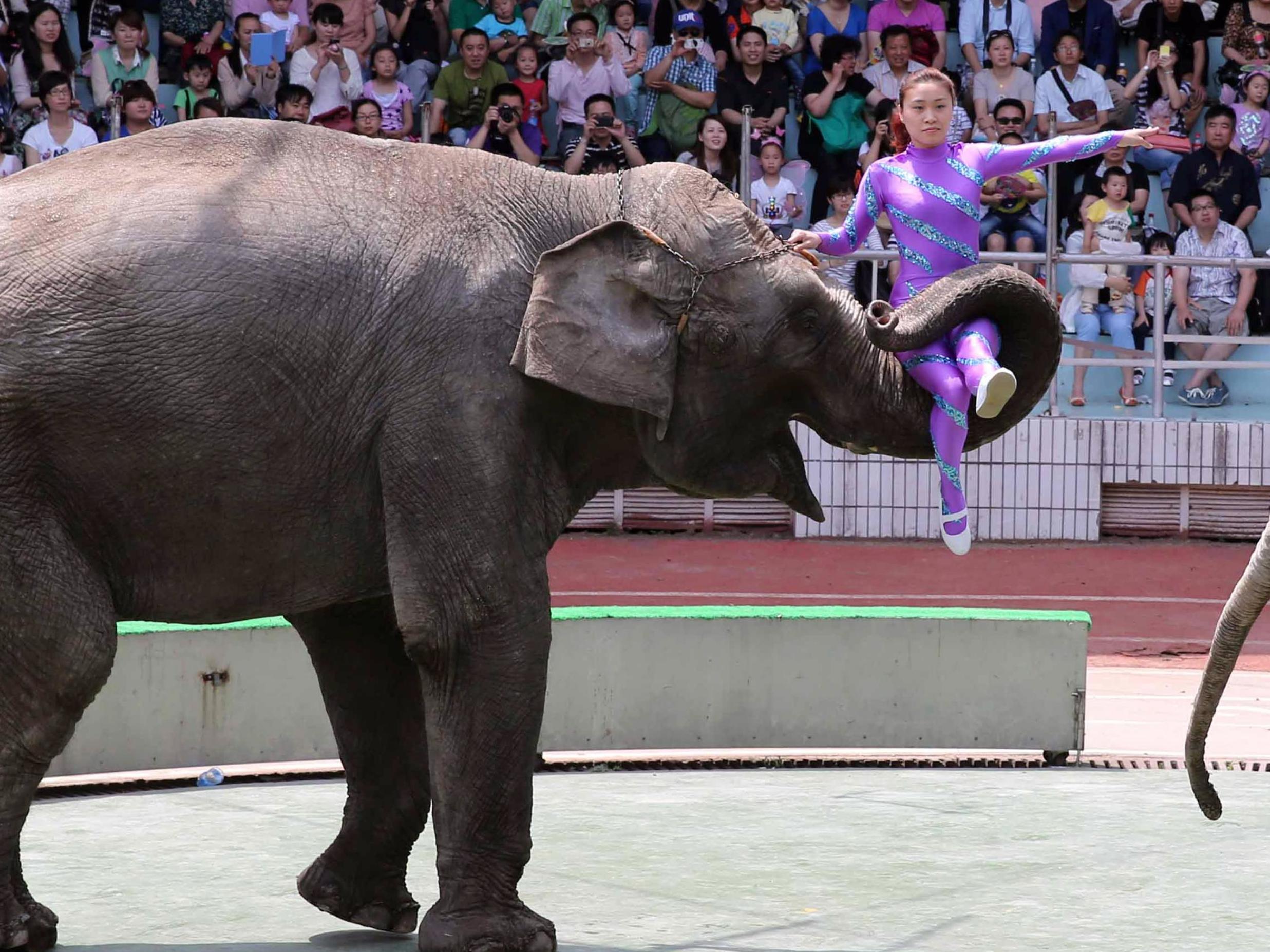EU set to overturn ban on baby African elephants being caught and sent to foreign zoos
Threatened giraffes are however, given protection from unregulated trade for first time ever

Your support helps us to tell the story
From reproductive rights to climate change to Big Tech, The Independent is on the ground when the story is developing. Whether it's investigating the financials of Elon Musk's pro-Trump PAC or producing our latest documentary, 'The A Word', which shines a light on the American women fighting for reproductive rights, we know how important it is to parse out the facts from the messaging.
At such a critical moment in US history, we need reporters on the ground. Your donation allows us to keep sending journalists to speak to both sides of the story.
The Independent is trusted by Americans across the entire political spectrum. And unlike many other quality news outlets, we choose not to lock Americans out of our reporting and analysis with paywalls. We believe quality journalism should be available to everyone, paid for by those who can afford it.
Your support makes all the difference.The European Union (EU) is poised to vote in favour of exporting wild baby elephants from Africa to zoos worldwide – a trade condemned as “barbaric”.
Officials say they will allow the practice to continue, thereby overturning a recent decision by 46 other countries at a meeting of the United Nations Convention on International Trade in Endangered Species (Cites) over the weekend.
Conservationists have attacked the 28 nation bloc’s “shocking and shameful” stance, accusing the bloc of “condemning young elephants to a life of hell”.
The creatures, many of whom survive long journeys to captivity, mostly in China, have been filmed being beaten and kicked, and displaying clear signs of stress, according to animal-welfare groups.
Earlier this week at the world’s biggest wildlife conference, governments including African elephant-range states, backed an end to the practice of capturing the youngsters, mostly in Zimbabwe, to be sold to zoos and circuses.
Before the vote at committee stage, EU representatives spoke out against the proposed ban, telling delegates they would oppose it.
A technical glitch prevented the bloc from voting then, but the bloc is widely expected to attempt to overturn the ban in full session next week.
Representing 28 countries including the UK, the EU vote carries great weight in shaping the rules of Cites, which is the world’s watchdog for wildlife trade.
Asked by The Independent why it opposes a ban the EU has yet to respond.
It is thought to be under pressure from the continent’s zoos that want to continue to import elephants to attract visitors.
Between 1990 and 2015, at least 1,774 wild African elephants were reported to have been exported for captive use, wildlife charity the Born Free Foundation says.
Secretive operations in the bush to capture baby elephants are thought to be carried out by teams of men in helicopters who chase the youngsters, forcibly separating them from their mothers, before tranquillising them.
Since 2012, China has imported more than 100 from Zimbabwe to keep in zoos and circuses. They are said to sell for up to $90,000 (£73,600) each.
“Video footage suggests that most were dependent calves aged between two and four, and a number have since been filmed displaying stress-induced behaviours,” according to the Born Free Foundation.
The International Union for the Conservation of Nature (IUCN) and the African Elephant Coalition nations also oppose the trade.
Without a ban, African elephants from Zimbabwe and Botswana may still be sent to destinations described by Cites rules as “appropriate and acceptable”.
Born Free, which branded the trade barbaric, said elephant families would continue to be ripped apart, and baby elephants “condemned to a lifetime of suffering in captivity” by the EU’s “shocking and shameful” decision.
Chief executive Howard Jones said: “We face a knife-edge decision on the future security of African elephants and the rights of elephant families not to be hunted, or mothers killed while their babies are kidnapped for live trade to captivity in China, Russia and any other country prepared to pay. It can’t be right, it isn’t right, now or ever, and the people of Europe must speak out against this horror and pull their leaders back from the edge.”
Under a ban, trade in elephants would be limited to “conservation programmes or secure areas in the wild within the species’ natural range”, except for temporary transfers in emergencies.
A letter to EU officials from six wildlife organisations says: “Elephants are social and emotional creatures who form strong family bonds and suffer tremendously in captivity. Captured elephants can face horrific abuse during the capture process. Footage of wild-caught baby elephants awaiting export from Zimbabwe shows calves being beaten and kicked during capture.
“Some elephants have died during transit or shortly after arrival.”
Humane Society International/Africa said the loss of captured individuals caused psychological trauma for both the captured animal and its family.
However, for the first time giraffes have been given protection from unregulated trade in a vote described as a “big win”.
Known as a “silent extinction”, giraffe numbers have plummeted by up to 40 per cent over 30 years because of trade in their parts, habitat loss and illegal hunting.
Join our commenting forum
Join thought-provoking conversations, follow other Independent readers and see their replies
Comments